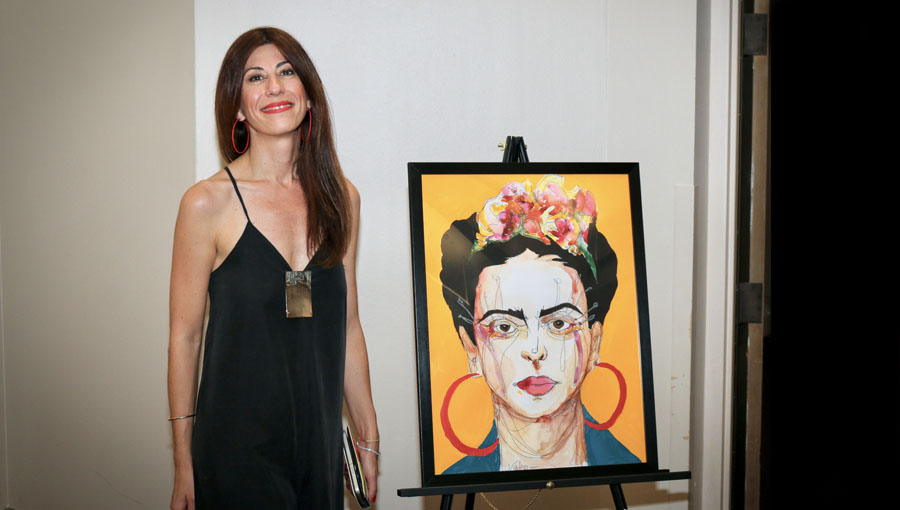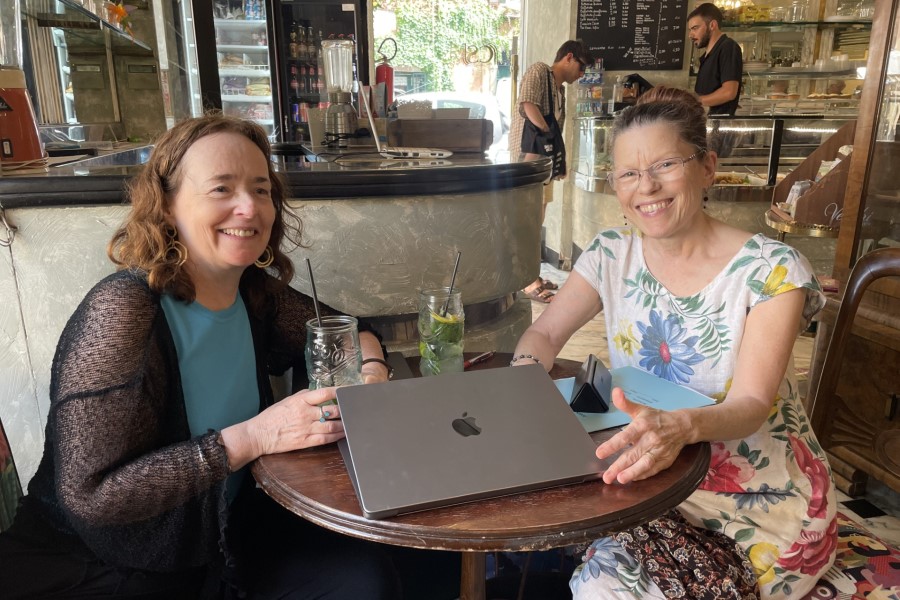Professor Carola Salvi Publishes Study on Link Between Social and Cognitive Rigidity
JCU Professor Carola Salvi is the lead author of a study recently published in the Psychological Research journal that provides evidence that people who embrace rigid political and social attitudes tend to perform worse on tests of problem-solving abilities. The study shows a strong connection between social rigidity and cognitive rigidity, demonstrating that “Inflexible thinking extends beyond strict political ideologies to a holistic reasoning style that includes aspects of rigidity such as xenophobia and absolutism.”

Professor Carola Salvi, who will officially be joining JCU as a tenure-track professor in the Fall, received her Ph.D. in Cognitive Neuroscience from the University of Milano – Bicocca. She then went on to complete a postdoctoral research fellowship at Northwestern University in Chicago. Professor Salvi is also a Research Affiliate at the Department of Psychiatry and Behavioral Science at the University of Texas at Austin. In Fall 2023, Professor Salvi will be teaching a course on The Science of Creativity.
How did you become interested in this topic?
I believe that people who are creative and good problem-solvers are also open-minded. I wanted to investigate whether there’s a link between these two aspects of human thinking, so this study looks at what it means to be a “flexible thinker.”
Since Adorno’s The authoritarian personality (1950), sociologists and psychologists have postulated that right-wing attitudes are associated with a “strict” cognitive style. However, most of the research in cognitive and social psychology focused either on pure cognitive and content-free reasoning or used self-reported questionnaires on social reasoning but hardly ever linked the two. While scholars agree that rigidity is not a unitary phenomenon, no studies have investigated latent profiles of social rigidity and problem-solving. The study shows that various types of social reasoning (conservatism, absolutism, xenophobia, bullshit receptivity, and overclaiming) predict distinct problem-solving performances.
What was the outcome of the study?
The study demonstrates that social rigidity predicts cognitive rigidity in problem-solving. To quote from the study, “Our findings imply that rigid thinking extends beyond formal political beliefs to a more holistic reasoning style that incorporates features of flexibility like being able to solve a simple problem, but also xenophobia and absolutism.” This outcome regards psychological dimensions that are frequently connected with polarized political ideologies, such as bullshit susceptibility (i.e., overestimating pseudo-profound statements) and overclaiming. The Latent Profiles Analysis performed revealed that those low in Socio-Cognitive Polarization (SCP; i.e., conservatism, absolutism, xenophobia), bullshit receptivity, and overclaiming performed the best on measures of problem-solving. Therefore, we argued that “social rigidity may be shared by an underlying socio-cognitive construct, wherein those who are more socially rigid are more likely to be cognitively rigid as well.”
Solving a problem implies seeing things from a different perspective. People who are more cognitively flexible tend to think outside the box and solve the problem. In our study, we found that “this simple skill transfers to social reasoning and helps to view social problems in a new light.”
Our findings show a direct parallelism between social and cognitive rigidity; nevertheless, additional study is required to speculate on the underlying psychological construct.
What most surprised you about the outcome of the study?
An unexpected finding was that within “those who are low in SCP, there is a specific group of individuals who tend to fail at detecting pseudo-profound and overclaiming statements, similarly to the profiles high in SCP. We have reason to believe that our profile analysis taps into a latent subgroup of people who are understudied in social psychology, namely, individuals who embrace liberal ideologies but who also tend to overclaim their knowledge and believe in bullshit. Our findings are consistent with the few studies that have found a relationship between the tendency to be so open-minded as to readily accept new ideas, thus overestimating the deepness of nonsense statements. These individuals appear to be on the fence between being tolerant and perhaps overly receptive and credulous. What we discovered leads us to believe that this inclination toward bullshit receptivity and overclaiming is due to pseudo-flexibility, as those allocated to this profile also scored worse on problem-solving than those assigned to the low SCP and low bullshit receptivity and overclaiming profiles.”
Tell us about your Fall 2023 course “The Science of Creativity.”
JCU is the only university in Italy, and among few in the world, that offers a course on “The Science of Creativity.” In this course, students will explore human creativity through different scientific perspectives (i.e., psychological, cognitive, artistic, and neurobiological). They will be introduced to research in creativity studies, and learn how to critically examine the current theories, evidence, and applications. It will include cutting-edge research that I and other researchers in the world are doing. I directly apply this science to our educational program to promote hands-on critical thinking among our students.





